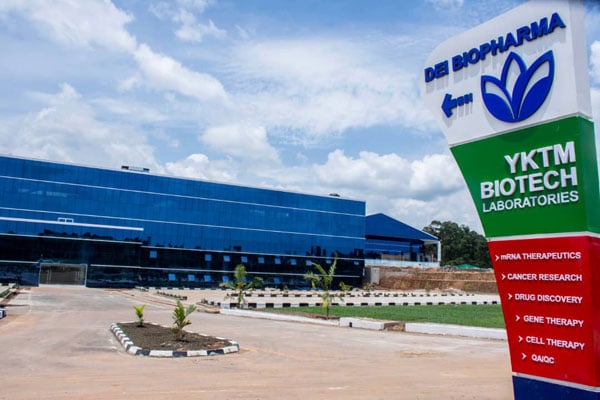Govt considering to bail out some distressed companies

Sources within the Finance Ministry indicate that Dei Biopharma is among the companies, whose plan for a bailout has been completed. Photo / File
What you need to know:
- Finance Minister Matia Kasaija indicates that discussions to bail out a pharmaceutical firm on Bombo Road and a factory in Ntungamo have been completed
Government is considering to bail out a number of distressed companies, many of which are currently battling foreclosures.
The companies, some of which have already been debated at Cabinet level, sources familiar with the discussions but declined to be named because they are not authorised to speak about the matter, said have been considered “too important to fail” at a time when the country is promoting the import substitution agenda.
Finance Minister Matia Kasaija, yesterday confirmed that he was aware of the considerations but declined to give details, noting that it would be too early to discuss a matter that has to go through a number of processes.
“Yes, I am bailing out a number of enterprises, one being a pharmaceutical company that is trying to produce vaccines and other drugs on Bombo Road and another factory in Ntungamo. For now, these are the only ones we are bailing out and the decision has been reached,” he said in response to our inquiries about matter.
It was not immediately clear which companies have been considered but sources in the Ministry of Finance indicated that Dei Biopharma, a company under the DEI Group headed by Mr Matthias Magoola, was one of those under consideration.
The multi-million dollar biological drugs and vaccines manufacturing facility in Matugga, Wakiso District on Bombo Road is currently under development to produce vaccines and low cost drugs, including cancer and malaria treatment medicines.
The project was launched by President Museveni and Kenyan President William Ruto (then Vice President) on July 6, 2021.
However, it is currently being threatened by a large debt exposure due to Equity Bank and other financiers.
In a series of notices, project financiers indicated recently that they would auction a number of properties, including Mr Magoola’s personal estates, against which the loan had been advanced.
In March, Monitor reported that Mr Magoola, who gained national attention when he, in the company of then Speaker of Parliament Rebecca Kadaga and a moustached American guest, told President Museveni that they had discovered a Covid-19 vaccine in 2020, was seeking $600m (Shs2.2 trillion) government bail-out to complete construction of a pharmaceutical plant in Matugga, north of Kampala.
Mr Magoola had earlier informed a group of ministers visiting the plant that he had received $100m (Shs370b) of an expected $400m (Shs1.4 trillion) from Equity Group and other financial institutions, but the rest of the money had been stopped on the instructions of Bank of Uganda, which had informed funders to stop further disbursements and instead reclaim their money.
It was not immediately clear how much money government will extend to DEI Group and under which conditions.
However, shadow Finance Minister Muwanga Kivumbi told Monitor that Mr Magoola’s company had asked for $1b but only Shs600b had been allocated through the Budget Paper of Parliament.
“The other companies that they want to consider is Biyinzika [Enterprises] and Mukalazi Technical Services,” he said.
However, Mr Kasaija said he was not aware of any discussion regarding Biyinzika even as he indicated there were other enterprises that are being considered.
“I am not aware of Biyinzika, but I can tell you I am bailing out a number of enterprises,” he said without revealing their details.
Biyinzika Enterprises is currently facing a foreclosure on a number of its properties over a Shs40b loan.
The case of Roko
Monitor recently reported that government had already completed plans to bailout businessman Patrick Bitature, who is currently having run-ins with a South Africa lender over a $35m.
Last year government bailed out Roko Construction with a Shs202b, which was used to acquire preference shares in the construction company. Government also extended Shs26b to Abubaker Technical Services, after the firm indicated it had serious cash-flow challenges.




